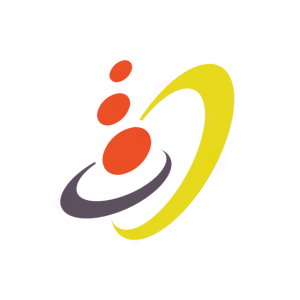Karyopharm Announces Upcoming Presentations of Phase 3 SIENDO Study of Selinexor in Patients with Advanced or Recurrent Endometrial Cancer
Rhea-AI Summary
Karyopharm Therapeutics (Nasdaq: KPTI) announced the upcoming presentations of results from the Phase 3 SIENDO study of selinexor for advanced or recurrent endometrial cancer at the ESMO Virtual Plenary on March 17, 2022, and the SGO 2022 Annual Meeting on Women's Cancer from March 18-21, 2022. The SIENDO study is a multicenter, randomized trial involving 263 patients, aiming to demonstrate improved progression-free survival with selinexor maintenance therapy compared to placebo. The study represents an important step, as there are currently no approved maintenance therapies for this cancer type.
Positive
- Up to 263 patients enrolled in the Phase 3 SIENDO study, indicating strong participation.
- Selinexor aims to fill an unmet need for advanced or recurrent endometrial cancer maintenance therapy.
- Upcoming presentations at major oncology conferences enhance visibility and credibility.
Negative
- No approved therapies currently exist for maintenance treatment of advanced or recurrent endometrial cancer, highlighting the challenge of market acceptance.
- Clinical trials are inherently risky; no guarantees of positive results from the SIENDO study.
News Market Reaction 1 Alert
On the day this news was published, KPTI gained 7.23%, reflecting a notable positive market reaction.
Data tracked by StockTitan Argus on the day of publication.
Study Results to be Presented at the European Society of Medical Oncology's Virtual Plenary and the Society for Gynecologic Oncology 2022 Annual Meeting on Women's Cancer
Company to Host Investor Conference Call on March 17th at 4:30 pm ET
NEWTON, Mass., March 16, 2022 /PRNewswire/ -- Karyopharm Therapeutics Inc. (Nasdaq: KPTI), a commercial-stage pharmaceutical company pioneering novel cancer therapies, today announced that results from the Phase 3 SIENDO study will be presented at the European Society of Medical Oncology's (ESMO) Virtual Plenary taking place on Thursday, March 17, 2022. The data will also be presented in a late-breaking abstract at the Society for Gynecologic Oncology (SGO) 2022 Annual Meeting on Women's Cancer taking place March 18-21, 2022, in Phoenix, Arizona.
Details for the presentations are as follows:
ESMO Virtual Plenary:
Title: Prospective double-blind, randomized phase III ENGOT-EN5/GOG-3055/SIENDO study of oral selinexor/placebo as maintenance therapy after first-line chemotherapy for advanced or recurrent endometrial cancer
Presenter: Professor Ignace Vergote, MD, PhD, Leuven University Hospitals, Leuven, Belgium
Date and Time: Thursday, March 17, 2022, 6:00pm-7:00pm CET/1:00pm-2:00pm ET
SGO 2022 Annual Meeting on Women's Cancer:
Title: Prospective double-blind, randomized phase III ENGOT-EN5/GOG-3055/SIENDO study of oral selinexor/placebo as maintenance therapy after first-line chemotherapy for advanced or recurrent endometrial cancer
Presenter: Professor Ignace Vergote, MD, PhD, Leuven University Hospitals, Leuven, Belgium
Session Type: Oral Presentation
Session: Scientific Plenary IV: Late-Breaking Abstracts
Date and Time: Saturday, March 19, 2022, 5:19pm-5:27pm MT/7:19pm-7:27pm ET
Conference Call Information
Karyopharm will host a conference call Thursday, March 17, 2022, at 4:30 p.m. Eastern Time, to discuss the SIENDO study results. To access the conference call, please dial (888) 349-0102 (local) or (412) 902-4299 (international) at least 10 minutes prior to the start time and ask to be joined into the Karyopharm Therapeutics call. A live audio webcast of the call, along with accompanying slides, will be available under "Events & Presentations" in the Investor section of the Company's website, http://investors.karyopharm.com/events-presentations. An archived webcast will be available on the Company's website approximately two hours after the event.
About the SIENDO Study
The Phase 3 SIENDO study (ENGOT-EN5/GOG-3055) is a multicenter, blinded, placebo-controlled, randomized study evaluating the efficacy and safety of selinexor as a maintenance therapy following chemotherapy in patients with advanced or recurrent endometrial cancer. The study enrolled 263 patients with primary stage IV or recurrent disease who had a partial or complete response after at least 12 weeks of standard taxane-platinum combination chemotherapy. Patients were randomized 2:1 to receive either maintenance therapy of 80mg of selinexor taken once weekly, or placebo, until disease progression. The primary endpoint of the study is statistically significant improvement of progression-free survival compared to placebo. The goal of the study was to demonstrate a hazard ratio of 0.6 or better. In partnership with Karyopharm, the study was initiated by the ENGOT group. In the U.S., the collaboration includes the GOG-F.
About Endometrial Cancer
Endometrial cancer is the most common cancer of the female reproductive organs in the U.S., with approximately 66,000 new cases expected in 2022 leading to nearly 13,000 deaths.1 In 2020, there were approximately 130,000 new cases and 29,000 deaths in Europe from endometrial cancer, while on a global scale there were 417,000 new cases and approximately 97,000 deaths.2 More than 90 percent of uterine body cancers occur in the endometrium, so the actual numbers for endometrial carcinoma cases and deaths are slightly lower than these estimates, which include both endometrial carcinomas and uterine sarcomas. Unlike other cancers that have decreased with preventative measures, endometrial cancer is on the rise.3 Risk factors include obesity, Type 2 diabetes, high-fat diets, use of tamoxifen and oral estrogens, and delayed menopause.4 While the majority of endometrial cancers are diagnosed at early stages, approximately 14,000 patients in the U.S. are diagnosed with advanced disease that cannot be fully removed using surgery.5 These patients, and those with recurrent disease, are treated with chemotherapy. Chemotherapy does not cure patients with endometrial cancer. The use of later lines of chemotherapy are intended to control symptoms rather than cure the disease. There are no approved therapies in the maintenance setting for patients with advanced or recurrent endometrial cancer. The current standard of care is a "watch and wait" approach.6
About XPOVIO® (selinexor)
XPOVIO is a first-in-class, oral exportin 1 (XPO1) inhibitor and the first of Karyopharm's Selective Inhibitor of Nuclear Export (SINE) compounds to be approved for the treatment of cancer. XPOVIO functions by selectively binding to and inhibiting the nuclear export protein XPO1. XPOVIO is approved in the U.S. and marketed by Karyopharm in multiple oncology indications, including: (i) in combination with Velcade® (bortezomib) and dexamethasone (XVd) in patients with multiple myeloma after at least one prior therapy; (ii) in combination with dexamethasone in patients with heavily pre-treated multiple myeloma; and (iii) in patients with diffuse large B-cell lymphoma (DLBCL), including DLBCL arising from follicular lymphoma, after at least two lines of systemic therapy. XPOVIO (also known as NEXPOVIO® in certain countries) has received regulatory approvals in a growing number of ex-U.S. territories and countries, including Europe, the United Kingdom, China, South Korea and Israel, and is marketed in those areas by Karyopharm's global partners. Selinexor is also being investigated in several other mid- and late-stage clinical trials across multiple high unmet need cancer indications, including myelofibrosis. For more information about Karyopharm's products or clinical trials, please contact the Medical Information department at:
Tel: +1 (888) 209-9326
Email: medicalinformation@karyopharm.com
XPOVIO® (selinexor) is a prescription medicine approved:
- In combination with bortezomib and dexamethasone for the treatment of adult patients with multiple myeloma who have received at least one prior therapy (XVd).
- In combination with dexamethasone for the treatment of adult patients with relapsed or refractory multiple myeloma who have received at least four prior therapies and whose disease is refractory to at least two proteasome inhibitors, at least two immunomodulatory agents, and an anti–CD38 monoclonal antibody (Xd).
- For the treatment of adult patients with relapsed or refractory diffuse large B–cell lymphoma (DLBCL), not otherwise specified, including DLBCL arising from follicular lymphoma, after at least 2 lines of systemic therapy. This indication is approved under accelerated approval based on response rate. Continued approval for this indication may be contingent upon verification and description of clinical benefit in confirmatory trial(s).
SELECT IMPORTANT SAFETY INFORMATION
Warnings and Precautions
- Thrombocytopenia: Monitor platelet counts throughout treatment. Manage with dose interruption and/or reduction and supportive care.
- Neutropenia: Monitor neutrophil counts throughout treatment. Manage with dose interruption and/or reduction and granulocyte colony–stimulating factors.
- Gastrointestinal Toxicity: Nausea, vomiting, diarrhea, anorexia, and weight loss may occur. Provide antiemetic prophylaxis. Manage with dose interruption and/or reduction, antiemetics, and supportive care.
- Hyponatremia: Monitor serum sodium levels throughout treatment. Correct for concurrent hyperglycemia and high serum paraprotein levels. Manage with dose interruption, reduction, or discontinuation, and supportive care.
- Serious Infection: Monitor for infection and treat promptly.
- Neurological Toxicity: Advise patients to refrain from driving and engaging in hazardous occupations or activities until neurological toxicity resolves. Optimize hydration status and concomitant medications to avoid dizziness or mental status changes.
- Embryo–Fetal Toxicity: Can cause fetal harm. Advise females of reproductive potential and males with a female partner of reproductive potential, of the potential risk to a fetus and use of effective contraception.
- Cataract: Cataracts may develop or progress. Treatment of cataracts usually requires surgical removal of the cataract.
Adverse Reactions
- The most common adverse reactions (≥
20% ) in patients with multiple myeloma who receive XVd are fatigue, nausea, decreased appetite, diarrhea, peripheral neuropathy, upper respiratory tract infection, decreased weight, cataract and vomiting. Grade 3–4 laboratory abnormalities (≥10% ) are thrombocytopenia, lymphopenia, hypophosphatemia, anemia, hyponatremia and neutropenia. In the BOSTON trial, fatal adverse reactions occurred in6% of patients within 30 days of last treatment. Serious adverse reactions occurred in52% of patients. Treatment discontinuation rate due to adverse reactions was19% . - The most common adverse reactions (≥
20% ) in patients with multiple myeloma who receive Xd are thrombocytopenia, fatigue, nausea, anemia, decreased appetite, decreased weight, diarrhea, vomiting, hyponatremia, neutropenia, leukopenia, constipation, dyspnea and upper respiratory tract infection. In the STORM trial, fatal adverse reactions occurred in9% of patients. Serious adverse reactions occurred in58% of patients. Treatment discontinuation rate due to adverse reactions was27% . - The most common adverse reactions (incidence ≥
20% ) in patients with DLBCL, excluding laboratory abnormalities, are fatigue, nausea, diarrhea, appetite decrease, weight decrease, constipation, vomiting, and pyrexia. Grade 3–4 laboratory abnormalities (≥15% ) are thrombocytopenia, lymphopenia, neutropenia, anemia, and hyponatremia. In the SADAL trial, fatal adverse reactions occurred in3.7% of patients within 30 days, and5% of patients within 60 days of last treatment; the most frequent fatal adverse reactions were infection (4.5% of patients). Serious adverse reactions occurred in46% of patients; the most frequent serious adverse reaction was infection (21% of patients). Discontinuation due to adverse reactions occurred in17% of patients.
Use In Specific Populations
Lactation: Advise not to breastfeed.
For additional product information, including full prescribing information, please visit www.XPOVIO.com.
To report SUSPECTED ADVERSE REACTIONS, contact Karyopharm Therapeutics Inc. at 1–888–209–9326 or FDA at 1–800–FDA–1088 or www.fda.gov/medwatch.
About Karyopharm Therapeutics
Karyopharm Therapeutics Inc. (Nasdaq: KPTI) is a commercial-stage pharmaceutical company pioneering novel cancer therapies. Since its founding, Karyopharm has been the industry leader in oral Selective Inhibitor of Nuclear Export (SINE) compound technology, which was developed to address a fundamental mechanism of oncogenesis: nuclear export dysregulation. Karyopharm's lead SINE compound and first-in-class, oral exportin 1 (XPO1) inhibitor, XPOVIO® (selinexor), is approved in the U.S. and marketed by the Company in three oncology indications and has received regulatory approvals in various indications in a growing number of ex-U.S. territories and countries, including Europe and the United Kingdom (as NEXPOVIO®), China and Singapore. Karyopharm has a focused pipeline targeting multiple high unmet need cancer indications, including in endometrial cancer, myelodysplastic syndromes and myelofibrosis. For more information about our people, science and pipeline, please visit www.karyopharm.com, and follow us on Twitter at @Karyopharm and LinkedIn.
Forward-Looking Statements
This press release contains forward-looking statements within the meaning of The Private Securities Litigation Reform Act of 1995. Such forward-looking statements include those regarding the ability of selinexor to treat patients with advanced or recurrent endometrial cancer with p53 wild-type and expectations related to future clinical development and potential regulatory submissions of selinexor for the treatment of patients with advanced or recurrent endometrial cancer with p53 wild-type. Such statements are subject to numerous important factors, risks and uncertainties, many of which are beyond Karyopharm's control, that may cause actual events or results to differ materially from Karyopharm's current expectations. For example, there can be no guarantee that Karyopharm will successfully commercialize XPOVIO or that any of Karyopharm's drug candidates, including selinexor and eltanexor, will successfully complete necessary clinical development phases or that development of any of Karyopharm's drug candidates will continue. Further, there can be no guarantee that any positive developments in the development or commercialization of Karyopharm's drug candidate portfolio will result in stock price appreciation. Management's expectations and, therefore, any forward-looking statements in this press release could also be affected by risks and uncertainties relating to a number of other factors, including the following: the risk that the COVID-19 pandemic could disrupt Karyopharm's business more severely than it currently anticipates, including by negatively impacting sales of XPOVIO, interrupting or delaying research and development efforts, impacting the ability to procure sufficient supply for the development and commercialization of selinexor or other product candidates, delaying ongoing or planned clinical trials, impeding the execution of business plans, planned regulatory milestones and timelines, or inconveniencing patients; the adoption of XPOVIO in the commercial marketplace, the timing and costs involved in commercializing XPOVIO or any of Karyopharm's drug candidates that receive regulatory approval; the ability to obtain and retain regulatory approval of XPOVIO or any of Karyopharm's drug candidates that receive regulatory approval; Karyopharm's results of clinical trials and preclinical studies, including subsequent analysis of existing data and new data received from ongoing and future studies; the content and timing of decisions made by the U.S. Food and Drug Administration and other regulatory authorities, investigational review boards at clinical trial sites and publication review bodies, including with respect to the need for additional clinical studies; the ability of Karyopharm or its third party collaborators or successors in interest to fully perform their respective obligations under the applicable agreement and the potential future financial implications of such agreement; Karyopharm's ability to enroll patients in its clinical trials; unplanned cash requirements and expenditures; development or regulatory approval of drug candidates by Karyopharm's competitors for products or product candidates in which Karyopharm is currently commercializing or developing; and Karyopharm's ability to obtain, maintain and enforce patent and other intellectual property protection for any of its products or product candidates. These and other risks are described under the caption "Risk Factors" in Karyopharm's Annual Report on Form 10-K for the year ended December 31, 2021, which was filed with the Securities and Exchange Commission (SEC) on March 1, 2022, and in other filings that Karyopharm may make with the SEC in the future. Any forward-looking statements contained in this press release speak only as of the date hereof, and, except as required by law, Karyopharm expressly disclaims any obligation to update any forward-looking statements, whether as a result of new information, future events or otherwise.
References:
1 American Cancer Society, About Endometrial Cancer: https://www.cancer.org/cancer/endometrial-cancer/about/key-statistics.html (accessed January 19, 2022)
2 International Agency for Research on Cancer, World Health Organization. "Corpus uteri Fact Sheet." Cancer Today, 2020: https://gco.iarc.fr/today/data/factsheets/cancers/24-Corpus-uteri-fact-sheet.pdf (accessed February 4, 2022)
3 Nation Cancer Institute, Endometrial Cancer Incidence Rising in the US and Worldwide: https://www.cancer.gov/news-events/cancer-currents-blog/2017/endometrial-cancer-incidence-rising (accessed January 19, 2022)
4 American Cancer Society, Endometrial Cancer Risk Factors. https://www.cancer.org/cancer/endometrial-cancer/causes-risks-prevention/risk-factors.html (accessed January 19, 2022)
5 Epic Oncology (Incidence, 1st/ 2nd line treated); epic Oncology physician survey 2019
6 National Comprehensive Cancer Network Clinical Practice Guidelines in Oncology. Uterine Neoplasms. v4.2021
![]() View original content:https://www.prnewswire.com/news-releases/karyopharm-announces-upcoming-presentations-of-phase-3-siendo-study-of-selinexor-in-patients-with-advanced-or-recurrent-endometrial-cancer-301503649.html
View original content:https://www.prnewswire.com/news-releases/karyopharm-announces-upcoming-presentations-of-phase-3-siendo-study-of-selinexor-in-patients-with-advanced-or-recurrent-endometrial-cancer-301503649.html
SOURCE Karyopharm Therapeutics Inc.







